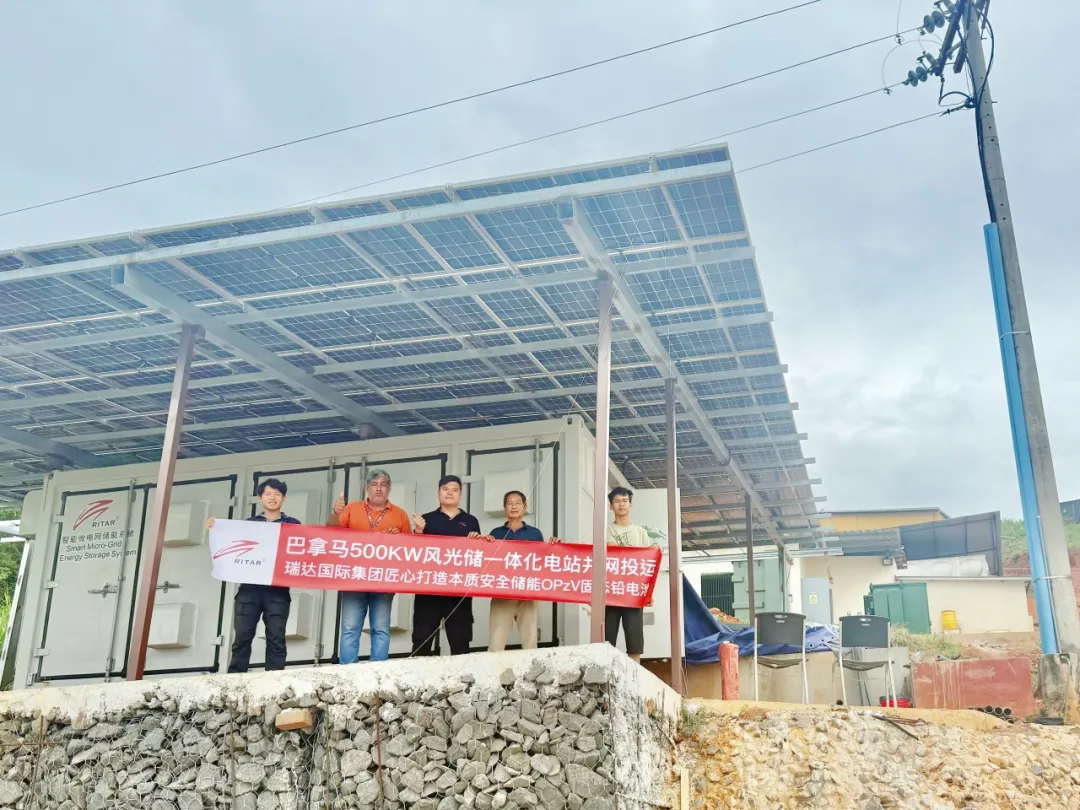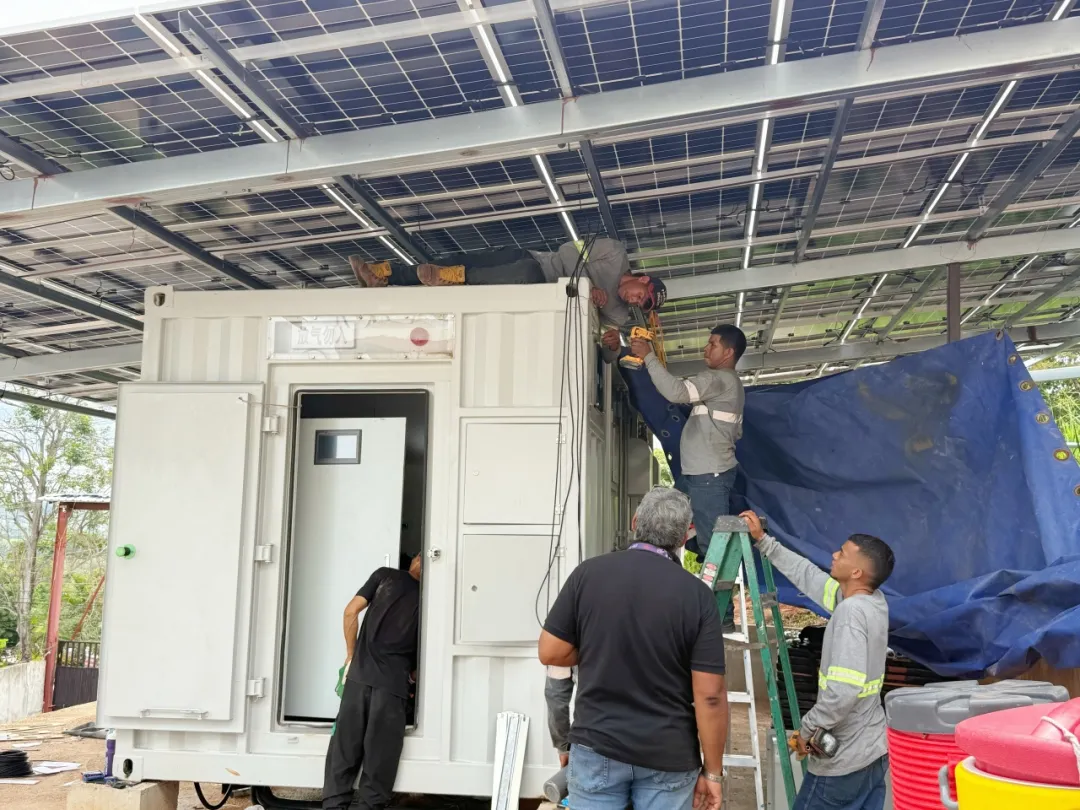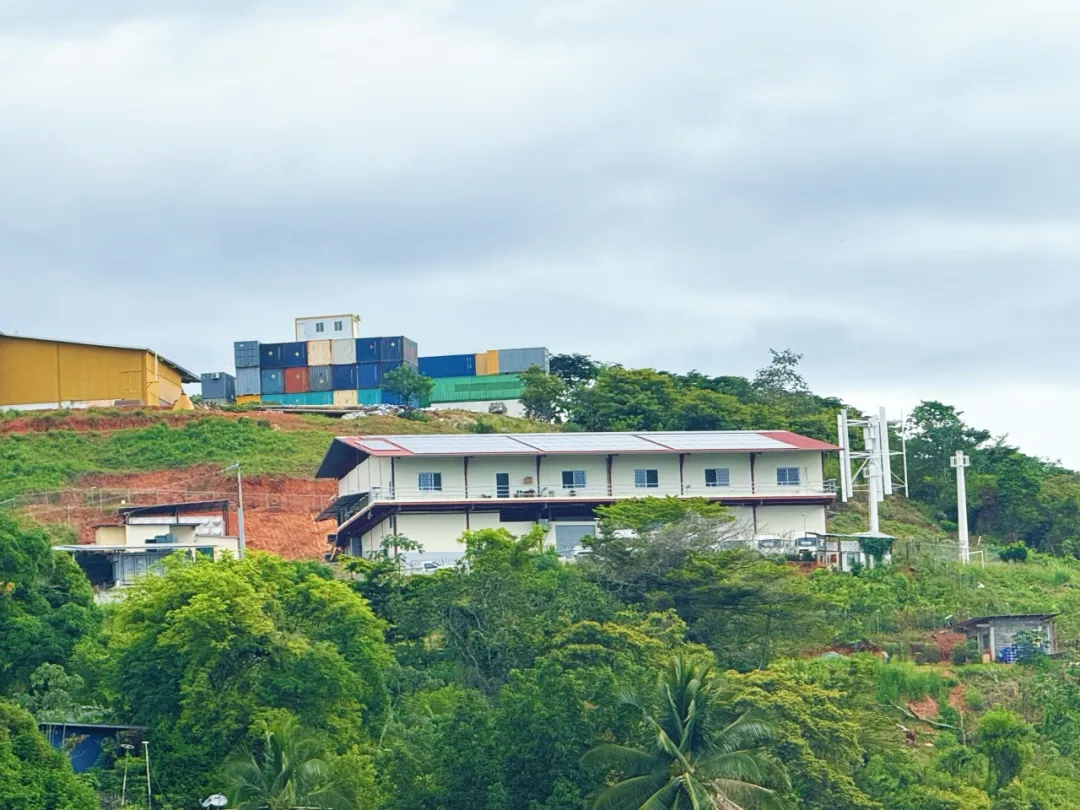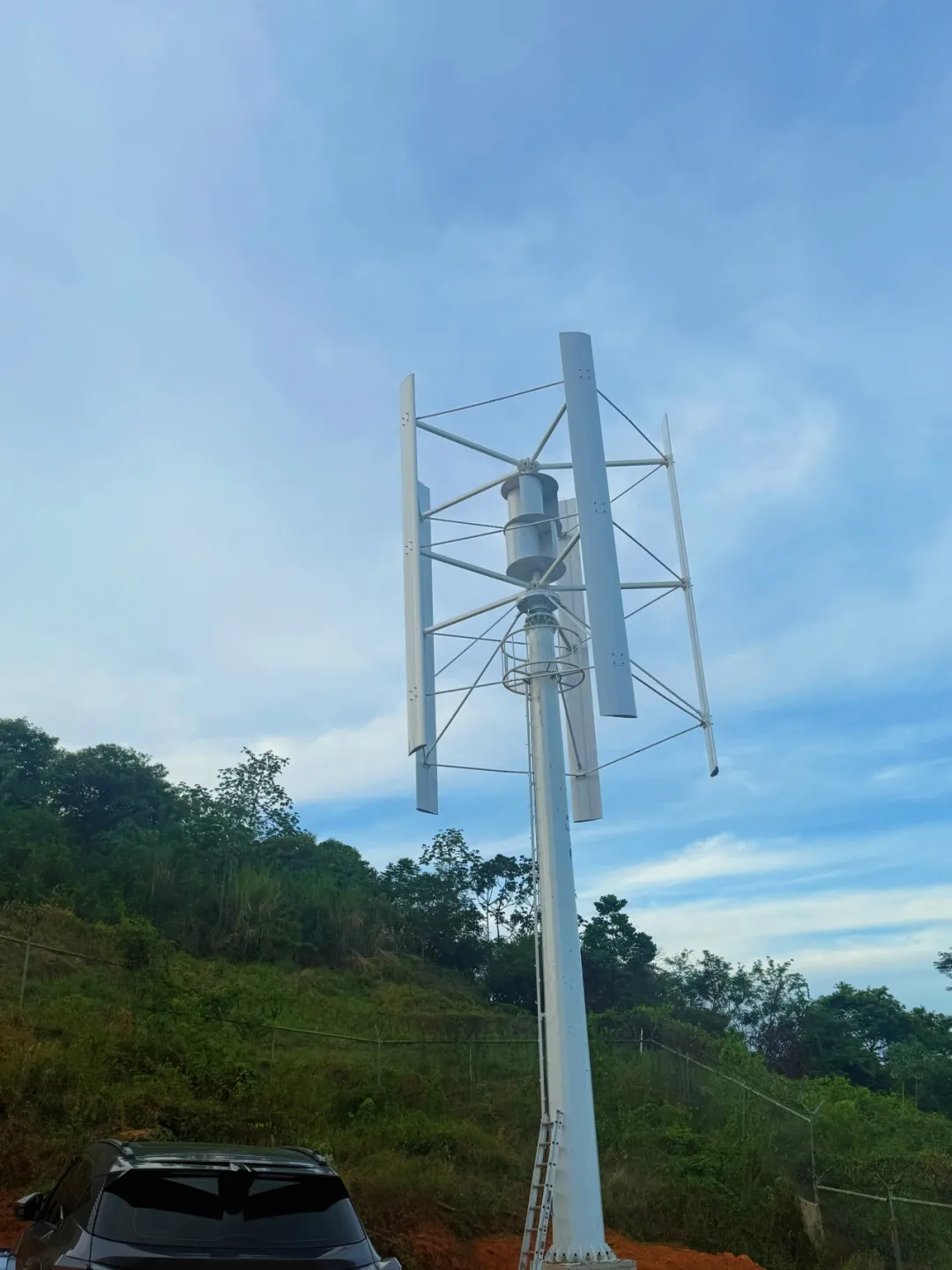Recently, Ritar International Group's wind-solar-storage integrated energy storage power plant project officially came into operation in Panama and achieved successful grid connection. By integrating renewable energy sources like wind and solar power with energy storage systems, the project has realized self-sufficient and efficient energy utilization.
Additionally, the project has directly improved the property's financial performance, generating monthly electricity savings of over $50,000. These savings will accumulate into a significant long-term financial advantage, boosting the property's sustainability, competitiveness, and gradual evolution into a model project for Panama's local energy economy.




As a pioneer and leader in solid-state lead battery technology, Ritar International Group has pioneered R&D in this field since its establishment in 2002. After years of innovation, the awarded Ritar solid-state lead battery has overcome critical technical limitations of traditional lithium batteries—such as flammable liquid electrolytes—by using non-combustible solid electrolytes, thus redefining energy storage safety standards with true intrinsic safety.
Ritar's solid-state lead batteries leverage unique solid electrolyte technology to eliminate safety hazards at their source, ensuring intrinsic safety. Even under extreme conditions like open-flame exposure, they remain non-flammable and non-explosive, making them suitable for safe indoor deployment.
Committed to zero emissions of wastewater, exhaust gas, and solid waste, we also offer 100% recycling services for end-of-life batteries, dedicated to building a green circular energy ecosystem.
With a design lifespan exceeding 25 years and 3,500 cycles at 80% DOD (Depth of Discharge), these batteries significantly reduce long-term O&M costs.
Featuring modular stacking designs, our solutions provide personalized energy storage configurations to meet diverse application needs.
Ideal for industrial/commercial energy storage, power generation/grid-side storage, and high-safety environments like data centers, nuclear plants, airports, and metro systems, Ritar's solid-state lead batteries demonstrate broad applicability.
The intrinsic safety of Ritar's solid-state lead batteries enables reliable operation in critical scenarios:
By combining wind and solar energy, the integrated power plant enhances reliability through energy complementarity, minimizing fluctuations in property power supply.
Complying with Industrial-Upgrading Architectural Design Guidelines, these non-flammable batteries are safely installed in commercial complexes and office buildings.
Proven in Gaza's conflict zone, where unstable power supply and extreme conditions posed risks, Ritar's batteries maintained stable operation for critical civil defense facilities.
Suitable for subway stations and underground malls, their explosion-free design and modular stacking enable safe operation in ventilated-restricted spaces.
Against the global backdrop of climate action and energy transition, wind-solar-storage integration projects like Ritar's in Panama play a pivotal role. By increasing renewable energy supply, reducing fossil fuel dependency, and lowering carbon emissions, the project sets a benchmark for sustainable development.
This initiative not only improves local environmental quality but also serves as a model for renewable energy development, accelerating the optimization of global energy consumption structures.